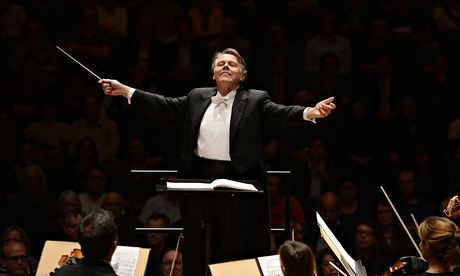
The Barbican Hall's acoustics could hardly be more different from that of the orchestra's Amsterdam home, but the Royal Concertgebouw's residencies there are now pleasingly regular. The latest centres on Bruckner, with three concerts in as many days under its chief conductor Mariss Jansons, including the Fourth, Seventh and Ninth Symphonies.
It's difficult to think of any portion of the repertoire in which this superlative orchestra does not excel. But the right way to play Bruckner seems particularly hard-wired into its make up – how to bring luminosity as well as weight to the textures, warmth as well as intensity to the long melodic lines, and above all how to generate huge, spell-binding climaxes without ever making them uncomfortably overbearing – something the Barbican's resident orchestra would do well to learn from.
Jansons knows his orchestra well enough by now to ensure that those qualities shine through his performance, but he's not, to my ears at least, a great Bruckner conductor: not a Wand, an Abbado or a Haitink. This was an immaculately crafted account of the Fourth, but more like a guided tour around a piece of prime musical real estate than a revealing reimagining of it. Some of the qualities you associate with Bruckner – the numinousness in the slow movement, the feral edge to the scherzo and above all the sense of a transformative journey completed when you reach the last pages of the finale, just weren't obvious here. For all the grandeur and the sumptuous sound, there were no moments to make you think, to force a re-evaluation of such familiar music.
Each of the London concerts begins with a concerto, and here Frank Peter Zimmermann was the soloist in Mozart's G major work for violin, K216. With his flawless intonation and utterly selfless musicality, Zimmermann is the ideal Mozart interpreter; with Jansons and a suitably scaled down orchestra accompanying with sensible tact, not a note was out of place, and the encore – the prelude from Bach's E major solo Partita – was just as immaculately judged.

